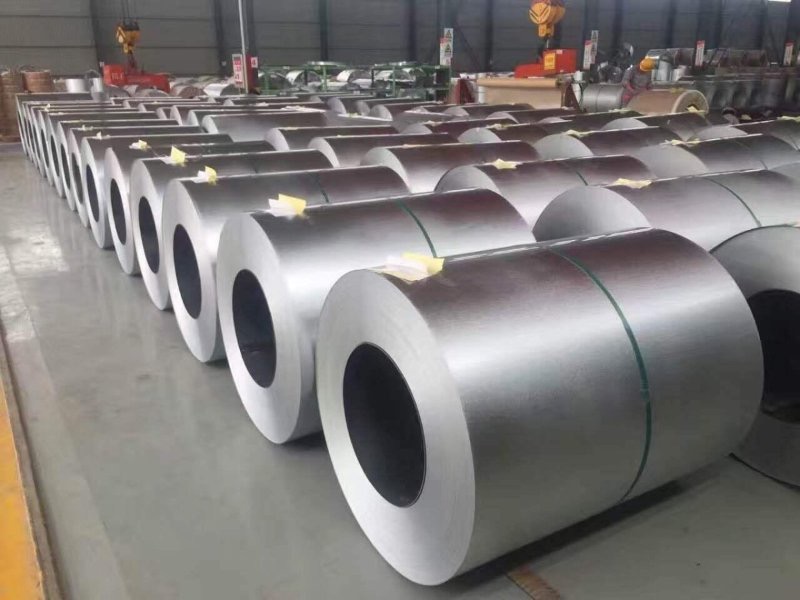 China
China
China flooding international markets with cheap goods: Reports
Beijing/Washington/IBNS: With tension between China and the United States far from tapering off anytime soon, it is in trade and economic sectors where Beijing’s activities appear to have further hit panic button in the US as Secretary of State Antony Blinken, during his April 24-26 visit to East Asian country, raised his concern on dumping of Chinese products, including steel and aluminium in the American market, reports Financial Post.
"At a meeting with Chinese top officials, Antony Blinken raised 'concerns' about China’s trade policies and non-economic practices," US State Department Spokesperson Matthew Miller was quoted as saying by Reuters.
This is the second time in a month when a senior official of the Joe Biden administration put the issue-related to dumping- on the table before Chinese authorities, Financial Post reported.
Earlier, the United States Treasury Secretary Janet Yellen, during her official trip to China from April 3 to 9, raised concern on Chinese overproduction and flooding of the American market with highly subsidized products, according to the Financial Post.
The US wants to rein in surging exports from China at any cost as it fears they are threatening American jobs and businesses, as per reports.
On April 17, worried by China’s continued dumping of steel and aluminium in the American market, President Joe Biden called on the US Trade Representative (USTR) to consider tripling the tariff on supply of these products from China, reports the Financial Post.
It was the first time when the US under the Biden administration proposed imposition of hefty tariffs on imports of Chinese steel and aluminium into the American market.
Presently, the average tariff in the US on certain steel and aluminium products is 7.5 percent, according to reports.
Explaining China's unfair practices, the White House said in a statement released on April 17, “American workers in the steel and aluminium industries face a significant challenge from Chinese exports of steel and aluminium which are among the most emission-intensive products in the world."
"China’s overcapacity and non-market investments in the steel and aluminium industries mean that high-quality US products have to compete with artificially low-priced alternatives produced with higher carbon emissions,” the White House added.
In March 2024, China’s steel exports to the US jumped 25.3 percent (to 9.89 million) compared to March 2023, while its exports of unwrought aluminium and aluminium products to the US totalled around 5,10,000 tons—a year-on-year increase of 3.1 percent, as per data from China’s General Administration of Customs.
This development suggests that China has reopened its old playbook and has chosen to export its way out of an economic downturn, which is not a good practice as an oversupply of commodities leads to a reduction in prices and uncertainty for industries in other countries, said analysts.
According to the Council on Foreign Relations, an American think tank specializing in US foreign policy and international relations, China’s surplus in goods trade has more than doubled since the pandemic.
In 2019, the East Asian country exported an estimated $400 billion more in goods than it imported. In 2023, its exports ballooned to $900 billion and this year, they are expected to soar beyond $1 trillion, reports said.
Despite this, China nonchalantly defends its approach in trade and commerce, saying those who say Beijing is dumping its products in the global market, are only justifying “protectionism”, according to reports.
“The notion that China’s overcapacity harms the global market is a complete fallacy. Those who spread that narrative to justify protectionism have nothing to gain from it and will only destabilize and disrupt industrial and supply chains,” said Lin Jian, the Foreign Ministry Spokesperson of China.
This has stoked tensions in the US and the European Union as they fear that China’s move could harm their plan to reduce their dependence on Beijing that they want to do by boosting local manufacturing and creating jobs, including through the Net-Zero Industry Act and the Inflation Reduction Act, according to reports.
Yet China appears to be less concerned about the impact of flooding the international market with its cheap goods so far as it helps it in earning profits, reports said.
According to the Financial Post, China’s first quarter GDP rose 5.3 percent – growing by 1.6 percent from the previous quarter.
Analysts see it as an unbalanced recovery and for this, they blame China which relies heavily on manufacturing and exports to checkmate downturn in its economy, as per reports.
However, it is in the case of China’s ‘unfair, non-market policies and practices’ to dominate the shipbuilding industries that pot is boiling in the US and the world, as reported by the Financial Post.
Rattled by China’s ‘unreasonable and discriminatory acts, policies and practices’ five American labour unions, including steel representatives on March 12 filed a petition before the US Trade Representative (USTR) to probe the East Asian country’s acts in distorting global markets in the maritime, logistics and shipbuilding sectors, the report added.
The White House said on April 17 after the US President gave approval to investigation into Beijing’s unfair shipbuilding practices by the USTR, “President Biden believes it is critical to understand China’s uniquely aggressive set of interventions in these sectors (maritime, logistics and shipbuilding), and to take actions that address distortions to the global market for commercial vessels, maritime shipping, and logistics that harm American workers and shipbuilders."
Support Our Journalism
We cannot do without you.. your contribution supports unbiased journalism
IBNS is not driven by any ism- not wokeism, not racism, not skewed secularism, not hyper right-wing or left liberal ideals, nor by any hardline religious beliefs or hyper nationalism. We want to serve you good old objective news, as they are. We do not judge or preach. We let people decide for themselves. We only try to present factual and well-sourced news.







